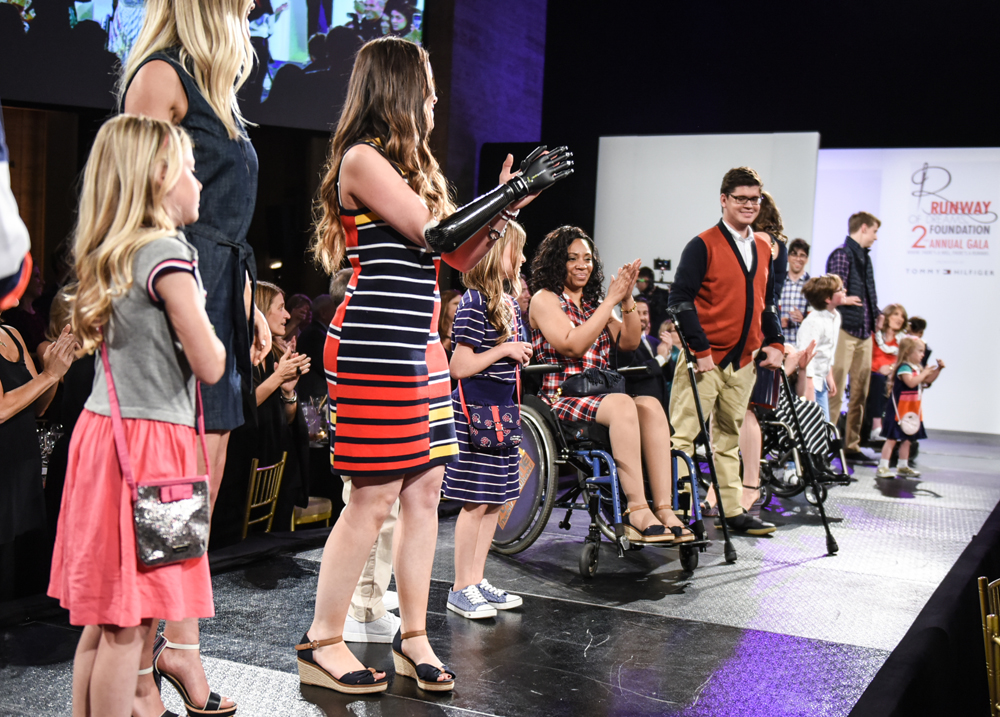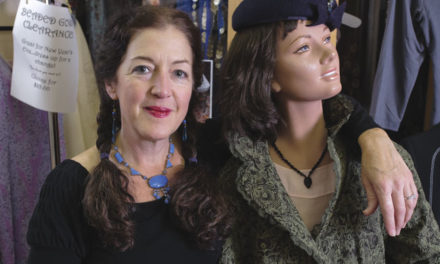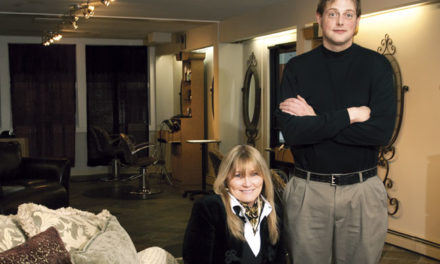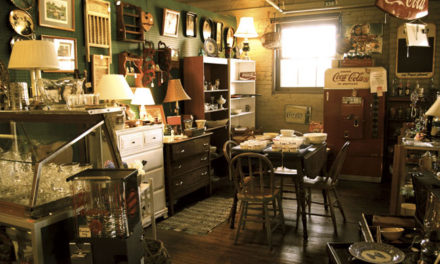
by TRACY ZOLLINGER TURNER
The fashion world has rarely accommodated people living with disabilities. Most often, clothing created for individuals who use a wheelchair, are unable to manipulate buttons, or need specialized footwear or other clothing adaptations comes with an obvious, sometimes awkward, preference for function over form.
But clothing is more than just a way to cover our bodies. “For a lot of us, clothing is such a big part of how we creatively explain who we are,” says Jennifer Piatt, recreational therapist and associate professor in the Indiana University School of Public Health. A national advocate for higher-quality adaptive fashion, Piatt is the catalyst for the first campus-based “Runway of Dreams” fashion show, designed to promote “inclusion and acceptance of individuals who are differently abled in the fashion industry.” It will take place at the IU Neal-Marshall Black Culture Center auditorium on November 8 from 7:30 to 8:30 p.m.
Piatt serves on the advisory council for Zappos Adaptive. In 2017, the Las Vegas shoe and clothing retailer created a website dedicated to the sale of more fashionable functional apparel (often by major brands like Tommy Hilfiger and Nike) with a wide variety of adaptations, including tag-free, sensory-friendly lines for individuals with autism; jeans cut to avoid pulling and bunching for those who use wheelchairs; and shoes that slip on and off easily. Through that work, Piatt connected with fashion designer Mindy Scheier, founder of the Runway of Dreams Foundation, a nonprofit with the mission to “broaden the reach of adaptive clothing and promote the differently abled community in the fashion industry.”
IU is one of five campuses in the nation with a Runway of Dreams club for students. Piatt, club student president Grace Burton, the Runway of Dreams Foundation, Zappos Adaptive, and collaborating faculty at the University of Missouri have launched a research project that examines how adaptive clothing impacts the college experience for students living with a disability. “Clothing is a huge part of the college experience,” Piatt says.
The fashion show will feature college students—including members of IU’s wheelchair basketball team—modeling adaptive clothing. Scheier and disability fashion styling expert, speaker, and educator Stephanie Thomas will be in Bloomington for the event.
Piatt says that Zappos’ work, and the addition of adaptive children’s clothing to major retailers like Target and Kohl’s, indicates that things are shifting for students and adults. “By the time my daughter goes into college in eight years, she and her friend with cerebral palsy will be able to go shopping at H&M together,” she predicts.
For more information and tickets, visit magbloom.com/iu-rod.






Important work. Interesting article